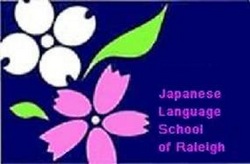PURPOSE

Increased investment by Japanese firms in North Carolina, internationalization of the staff of non-Japanese companies in our area, and the presence at our universities of a substantial number of visiting scholars have combined to bring a growing number of Japanese families into the greater Triangle Area since the late 1970's. One major concern for these families is the reintegration of their children into the Japanese school system upon their ultimate return to Japan. That school system is a meritocracy which opens the doors to life opportunities to those who meet its rigorous standards. However, its demanding national curriculum and requirement for the mastery and retention of a large vocabulary of kanji (Chinese characters) make success very difficult for any child who has experienced a protracted absence from the system. Study abroad may offer other enriching experiences but it also hampers a child's ability to master the skills and information which they need to complete in Japanese schools.
In order to minimize the disruption to their children's education while overseas, it is common practice for Japanese communities abroad to send their children to local school during the weekdays, and to supplement that instruction by creating a part-time school (usually a Saturday school in the US) where they can study Japanese language and math skills taught in Japanese. The Japanese Language School of Raleigh is such an organization. The JLSR will accommodate all children, regardless of nationality, who can perform at an age-appropriate level of fluency in Japanese and participate in class. However, the original purpose for its foundation and its abiding primary goal is to help the children of the transient Japanese community in the Greater Triangle Area keep pace with their age cohort in Japan in language skills and math methods and thus return to the Japanese educational system with a minimum of academic disadvantages.
The school also serves to reinforce ties for these children to Japanese social and cultural values, and gives them an opportunity to meet, talk, and play with other Japanese children after attending school all weeklong in a foreign language -- English. Another social function of the school is that it brings the parents of the Japanese families together weekly for an opportunity to enjoy some contact each other.
In order to minimize the disruption to their children's education while overseas, it is common practice for Japanese communities abroad to send their children to local school during the weekdays, and to supplement that instruction by creating a part-time school (usually a Saturday school in the US) where they can study Japanese language and math skills taught in Japanese. The Japanese Language School of Raleigh is such an organization. The JLSR will accommodate all children, regardless of nationality, who can perform at an age-appropriate level of fluency in Japanese and participate in class. However, the original purpose for its foundation and its abiding primary goal is to help the children of the transient Japanese community in the Greater Triangle Area keep pace with their age cohort in Japan in language skills and math methods and thus return to the Japanese educational system with a minimum of academic disadvantages.
The school also serves to reinforce ties for these children to Japanese social and cultural values, and gives them an opportunity to meet, talk, and play with other Japanese children after attending school all weeklong in a foreign language -- English. Another social function of the school is that it brings the parents of the Japanese families together weekly for an opportunity to enjoy some contact each other.